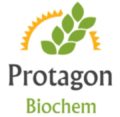Distillery
Distillery Products:
Fermash-P
Profoam-DD
Protect – F
Yeast
Fermash-P:
(Alcohol Booster Enzyme)
Fermash-P is a propriety blend of enzymes containing all the essential enzymes required for improving and boosting the fermentation efficiency of molasses for ethanol production. Fermash-P consists of seven primary and four secondary enzymes that are produced through submerged and solid state fermentation of highly selected strains of Rhizopus oryzae, Trichoderma reesie and Aspergillus oryzae.
Benefits:
- Fermash-P can increase the yield of the final product by 0.3 to 0.5%.
- Fermash-P reduces microbial contamination during molasses fermentation
- Fermash-P reduces the volatile acid formation.
- Broad temperature range for efficient working.
- Fermash-P is 100% eco-friendly in nature.
- Stable to provide for easy handling & efficient results.
- Fermash-P breaks down the complex polysaccharides in molasses in to fermentable sugars which are easily utilized by yeast.
- Fermash-P provides nutrients for yeast metabo-lism & propagation for better performance.
- Fermash-P improves integrity of yeast cell wall towards end of fermentation when alcohol level is high in the fermenting molasses.
- Fermash-P reduces fermentation time from 2 to 4 hours.
Profoam-DD :
(Defoamer/Antifoam)
The Profoam-DD or an antifoaming agent is a chemical additive that reduces Hinders the formation of foam in molasses distillery. The terms antifoaming agent and defoamer are often used interchangeably. The Profoam-DD is normally used in Molasses distillery to increase the speed of fermentation by reducing foaming, the foam is generally created by protein and Co2 action in the fermentation tank.
Benefits:
- The Profoam-DD is tailor made to reduce foaming in your fermentation system , more TRS leads to increase the foam , accordingly Profoam-DD takes care of severe foaming.
- No adverse effect on yeast vitality and cell count.
- Easy handling.
- Indirect saving due to less handling , less man hours and less skill monitoring.
- Cheaper and economical than other defoamers.
- The Profoam-DD is fully biodegradable and will not pose any problem in the ETP.
- The Profoam-DD base of fatty acid has very high molecular wt. and not distill off and con-taminate the end product.
Protect –F :
Industrial fermentation is the intentional use of fermentation by microorganisms such as bacteria and fungi. Some commodity chemicals, such as acetic acid, citric acid, and ethanol are made by fermentation. The rate of fermentation depends on the concentration of microorganisms, cells, cellular components, and enzymes as well as temperature, pH and for aerobic fermentation oxygen. Product recovery frequently involves the concentration of the dilute solution. Nearly all commercially produced enzymes, such as lipase, invertase and rennet, are made by fermentation with genetically modified microbes. In some cases, production of biomass itself is the objective.
Prosecch-55 (Yeast For Fermentation):
The product is made of specifically selected high-quality alcohol yeast strains with compound nutrient agents, and is applicable to the ethanol production that adopts molasses, sugar cane juice, beet juice, sweet sorghum and other saccharine materials, as well as the separation and purification of oligosaccharide products as oligoisomaltose, etc. the product will immediately resume the normal cell status after rehydration, with the characteristics of being osmophilic, ethanol tolerance (15% v/v), acid tolerance (pH 3.5).Fast fermentation etc.
Benefits:
- Multi-strain improve the fermentation ability.
- High invertase; fast transforming from cane sugar to monosaccharide.
- Strong zymase activity, fast and complete fermentation, strong fermentation ability, less residual sugar and high alcohol productivity. The speed of sugar reduction and ethanol production is bviously higher than general alcohol yeast.
- High osmotic pressure tolerance.
- Ethanol tolerance ~ 15%(v/v).
- Temperance tolerance; the optimal fermentation temperature is 930F– 980F (34-360C), normal fermentation can be realized at 1000F (380C)
pH tolerance; the appropriate fermentation pH value is 4.2-4.5, normal fermentation can be realized when pH value is 3.5-6.5, the fermentation will be basically stopped when pH value is below 3
